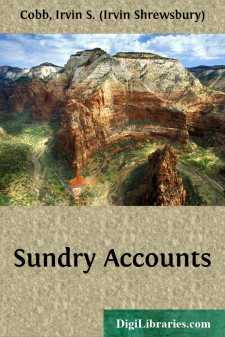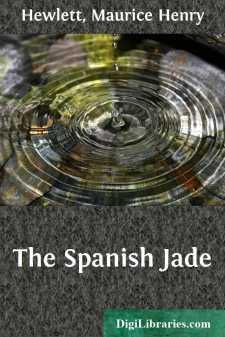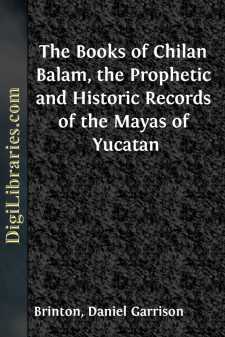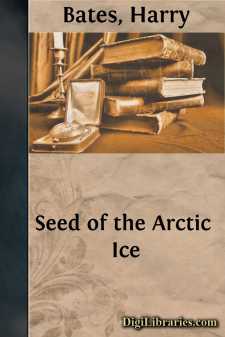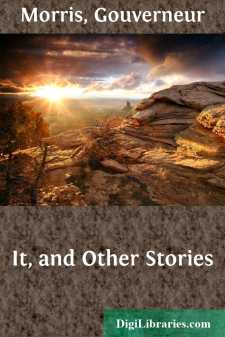Fiction
- Action & Adventure 182
- Biographical 15
- Christian 59
- Classics
- Coming of Age 5
- Contemporary Women 3
- Erotica 9
- Espionage/Intrigue 12
- Fairy Tales, Folklore & Mythology 236
- Family Life 169
- Fantasy 117
- Gay 1
- General 596
- Ghost 32
- Historical 808
- Horror 43
- Humorous 161
- Jewish 25
- Legal 4
- Medical 22
- Mystery & Detective 315
- Political 49
- Psychological 41
- Religious 64
- Romance 160
- Sagas 11
- Science Fiction 730
- Sea Stories 113
- Short Stories (single author) 537
- Sports 10
- Suspense 1
- Technological 8
- Thrillers 2
- Urban Life 31
- Visionary & Metaphysical 1
- War & Military 173
- Westerns 199
Classics Books
Sort by:
by:
Eugene Sue
A CARDINAL SIN. CHAPTER I. On a beautiful, bright morning of the month of May, 18—, a young girl of eighteen years or thereabouts, whose pale, melancholy face reflected only too plainly the wretchedness and privations of her daily life, was wending her way, timidly and with hesitating steps, through that populous quarter of the city known as the Charnier des Innocents, a dreary spot, principally...
more...
CHAPTER I DARKNESS There was a house in this town where always by night lights burned. In one of its rooms many lights burned; in each of the other rooms at least one light. It stood on Clay Street, on a treeless plot among flower beds, a small dull-looking house; and when late on dark nights all the other houses on Clay Street were solid blockings lifting from the lesser blackness of their background,...
more...
INTRODUCTION Cada puta hile (Let every jade go spin).—SANCHO PANZA. Almost alone in Europe stands Spain, the country of things as they are. The Spaniard weaves no glamour about facts, apologises for nothing, extenuates nothing. Lo que ha de ser no puede faltar! If you must have an explanation, here it is. Chew it, Englishman, and be content; you will get no other. One result of this is that...
more...
ivilization in ancient America rose to its highest level among the Mayas of Yucatan. Not to speak of the architectural monuments which still remain to attest this, we have the evidence of the earliest missionaries to the fact that they alone, of all the natives of the New World, possessed a literature written in “letters and characters,” preserved in volumes neatly bound, the paper manufactured...
more...
CHAPTER I SHOWS MRS. THESIGER IN HER HOME The Geneva express jerked itself out of the Gare de Lyons. For a few minutes the lights of outer Paris twinkled past its windows and then with a spring it reached the open night. The jolts and lurches merged into one regular purposeful throb, the shrieks of the wheels, the clatter of the coaches, into one continuous hum. And already in the upper berth of her...
more...
by:
Harry Bates
Sleepily the lookout stared at the scope-screen before him, wishing for something that would break the monotony of the scene it pictured: the schools of ghostly fish fleeting by, the occasional shafts of pale sunlight filtering down through breaks in the ice-floes above, the long snaky ropes of underwater growth. None of this was conducive to wakefulness; nor did the half-speed drone of the electric...
more...
by:
May Sinclair
INTRODUCTION This is a "Journal of Impressions," and it is nothing more. It will not satisfy people who want accurate and substantial information about Belgium, or about the War, or about Field Ambulances and Hospital Work, and do not want to see any of these things "across a temperament." For the Solid Facts and the Great Events they must go to such books as Mr. E. A. Powell's...
more...
by:
A. C. Morant
PREFACE. In this book Dr. Schaffle seeks to carry out still further the idea which he developed in his last book (The Impossibility of Social Democracy) of the essential difference between a socialistic policy and what he calls a Positive Social Policy, proceeding constructively upon the basis of the existing social order. He emphatically vindicates the Emperor Williamâs policy, as shown in the...
more...
ALL SOULS’ NIGHT ’Tis All Souls’ Night and the great Christ Church bell, And many a lesser bell, sound through the room, For it is now midnight; And two long glasses brimmed with muscatel Bubble upon the table. A ghost may come, For it is a ghost’s right, His element is so fine Being sharpened by his death, To drink from the wine-breath While our gross palates drink from the whole wine. I need...
more...
IT Prana Beach would be a part of the solid west coast if it wasn't for a half circle of the deadliest, double-damned, orchid-haunted black morass, with a solid wall of insects that bite, rising out of it. But the beach is good dry sand, and the wind keeps the bugs back in the swamp. Between the beach and the swamp is a strip of loam and jungle, where some niggers live and a god. I landed on Prana...
more...



